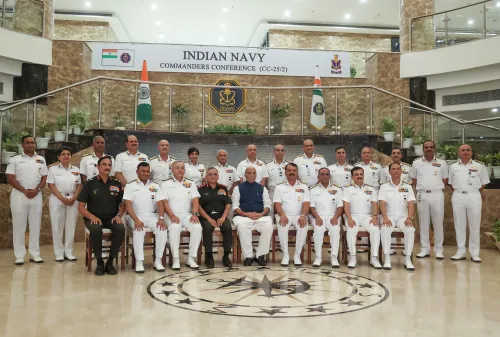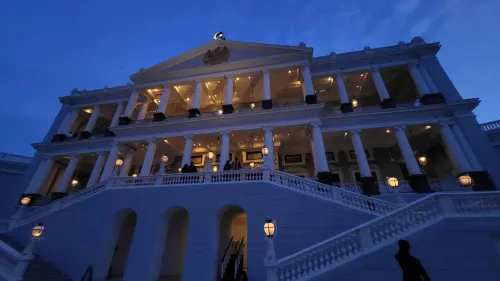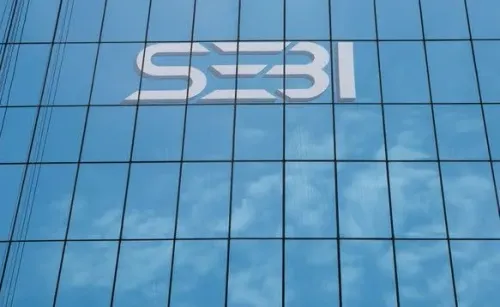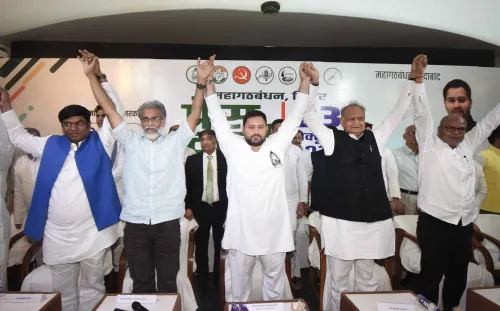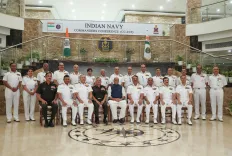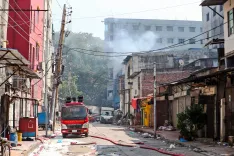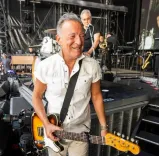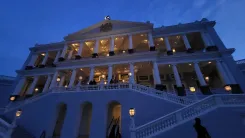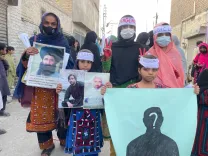How Did Chanda Babu’s Son Experience the Horrific Killings of His Brothers Amidst Outrage Over Shahabuddin’s Son's Candidacy?

Synopsis
Key Takeaways
- Political violence often leads to devastating consequences for families.
- There is a pressing need for electoral reform to prevent criminal elements from entering politics.
- Survivors of such violence require extensive support to cope with trauma.
- The accountability of political parties in candidate selection is crucial for public trust.
- Education and qualifications should be prioritized in political candidacy.
Patna, Oct 23 (NationPress) The decision by the Rashtriya Janata Dal (RJD) to nominate the late don-turned-politician Mohammad Shahabuddin's son for the Assembly elections has sparked intense and furious reactions from various political factions and the public. As criticism mounts against the RJD for endorsing the offspring of a notorious gangster, Chandrakeshwar Prasad's son recounted the harrowing murders of his brothers during the notorious ‘Tejaab kand’ when Shahabuddin was in power.
Chandra Babu, as he is commonly known, embarked on a 15-year-long legal struggle to obtain justice for his sons, but tragedy struck again as his third son was murdered just days following his court appearance.
During an interview with IANS, Monu detailed his family’s suffering while voicing his disapproval regarding the nomination of a gangster’s son. He emphasized that electoral candidates should be well-educated and qualified individuals dedicated to societal welfare and peace. Last week, Union Home Minister Amit Shah also condemned the RJD’s choice to field Shahabuddin's son in the Bihar Assembly elections.
In the IANS interview, Monu recounted the painful instances leading up to the brutal killings of his brothers, explaining how the perpetrators laughed in the face of justice.
Here are some excerpts from the interview:
IANS: Do you believe it is appropriate to give a ticket to Shahabuddin's son, who has a history of criminal activity? The Home Minister described this as 'Jungle Raj Part 2.' Do you concur?
Monu: While we cannot outright say who deserves a ticket, I firmly believe that electoral nominations should be granted to educated and competent individuals genuinely invested in public welfare.
The background and motives of the candidates must be thoroughly scrutinized. Only responsible and virtuous individuals should be permitted to run for office. It is crucial that those who present well before elections do not drastically change after being elected.
We require representatives who prioritize the welfare of all citizens and ensure peace in Siwan. What transpired with my family should never recur. That is my only wish.
IANS: How did Shahabuddin orchestrate the killings of your three brothers?
Monu: He and his associates murdered two of my brothers using acid. After we were unable to pay the extortion fee of ₹2 lakh to Shahabuddin, acid was thrown on my brothers Girish Raj and Satish Raj on August 16, 2004. My third brother, Rajiv Raushan, who was the sole witness, managed to escape the scene. Tragically, ten years later, Rajiv was killed on August 16, 2014, just two days before he was supposed to testify in court.
IANS: What were your feelings during that time?
Monu: To be honest, I felt nothing at that moment. It was as if our entire family had been shattered. After my brothers passed away, we were left devastated. Only four of us survived the incident in 2004 - my father, mother, sister, and I - and we managed to escape after an hour. Afterward, we fled in every direction, living in constant fear.
For a long time, our family members were untraceable. It took about a year and a half, maybe two years, for us to reunite with our father. He introduced us to some acquaintances, and gradually, we began to live together again.
IANS: Did you face any threats following those events?
Monu: Personally, I was never threatened. However, my father received numerous threats during that period. We are uncertain about the details, but he would get calls and visits from individuals attempting to influence him regarding the case. My father often remarked, 'Look at the suffering we've endured - how can this just be a matter of the government?'
He was even offered money, to which he responded, 'What will we do with money when we've lost our children?' When someone loses their brothers or sons, no amount of money can compensate for that loss.
IANS: What did your father endure during his lifetime?
Monu: Our father was a true warrior. He had to care for us and provide for us despite unimaginable grief. Both parents were deeply traumatized after losing two sons, and the murder of the third completely shattered him. He often lamented, 'Now we have no one left.' We were powerless to act - not then, not now. The memories of those events caused my father to become ill, and eventually, my mother suffered paralysis from the shock.
On one occasion, some men came and began attacking my elder brother, claiming, 'He's grown up now - take him to the Sahab.' As they dragged him away, my younger brother witnessed the incident and attempted to contact the police. One of the assailants grabbed his hand and warned, 'You don't know who we are. If you call the police, you'll regret it.'
Both of my brothers were kidnapped. Later that evening, when my other brother was returning home, he too was abducted along with his vehicle. Everyone warned us to flee for our safety.
IANS: What transpired with your family afterward?
Monu: Whatever we experienced, I hope it never happens to anyone else. Our shop was set ablaze and looted - we were left with nothing. Somehow, we managed to survive.
Eventually, I received assistance from my brother. Around this time, my sister got married in 2011. After her marriage, my brother became the sole breadwinner of the family. I worked on various website projects and operated a small shop in Gala Bazaar.
We struggled to clear numerous old debts. My father had promised we would repay every cent owed. But some influential businessmen insisted, 'Return our goods first.' So, my father reopened the shop. We faced extremely challenging conditions for four years. Ultimately, my father managed to relaunch the shop, and the creditors collected their dues. After that, there was nothing left.
I somehow borrowed money to restart our lives. Slowly, things began to improve until 2014 when my brother was killed. We had come to Siwan to visit our paralyzed mother when he was shot dead. Yet, no progress was made in the case, and we received no information.

